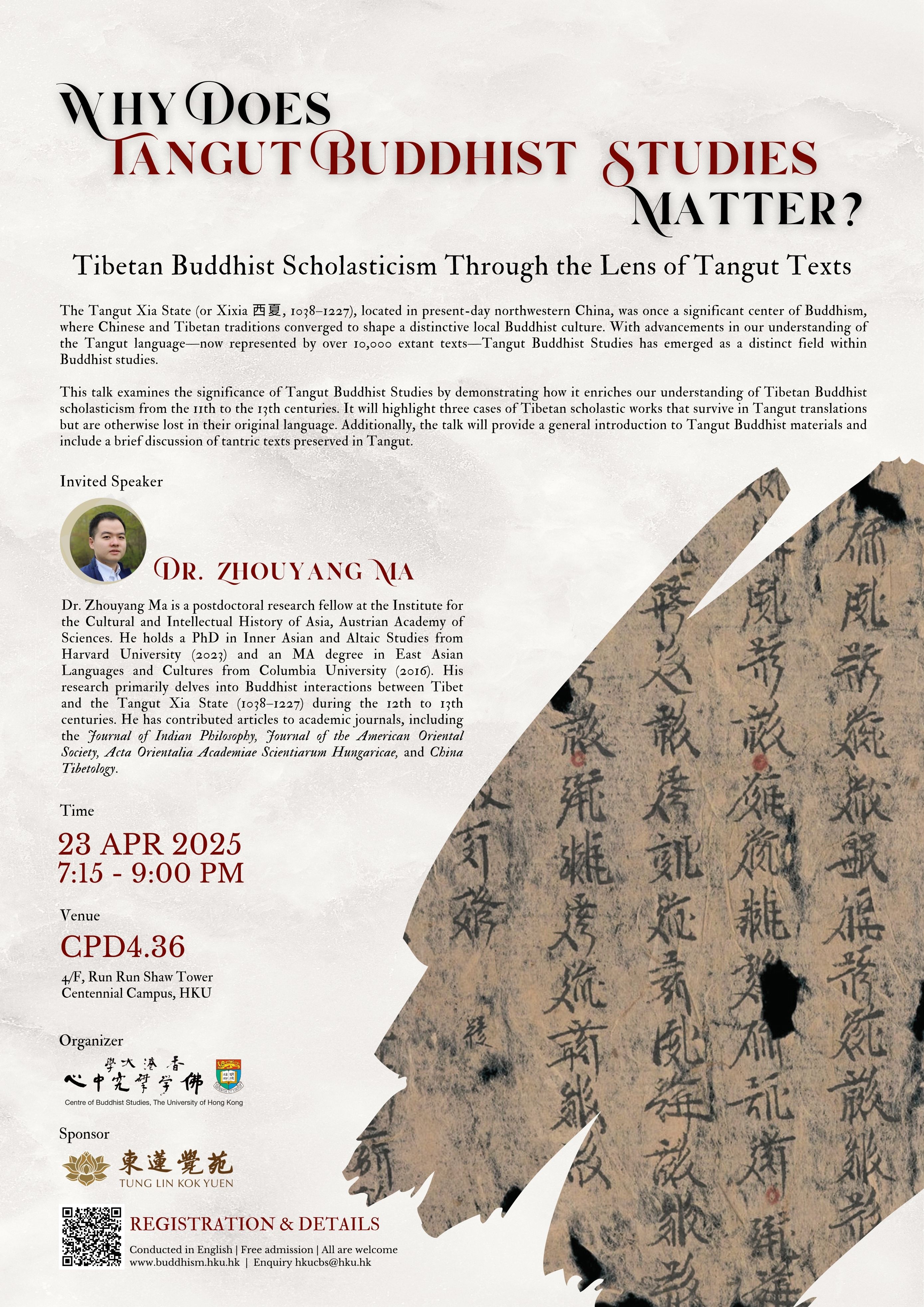Why Does Tangut Buddhist Studies Matter?
Tibetan Buddhist Scholasticism Through the Lens of Tangut Texts
| Dummy | Dummy |
|---|---|
| Speaker: | Dr. Zhouyang Ma |
| Time: | 23 April 2025 (Wed)| 7:15-9:00 pm |
| Venue: | CPD4.36, 4/F, Run Run Shaw Tower, Centennial Campus, HKU |
About the speaker:
Zhouyang Ma is as a postdoctoral research fellow at the Institute for the Cultural and Intellectual History of Asia, Austrian Academy of Sciences. He holds a PhD in Inner Asian and Altaic Studies from Harvard University (2023) and an MA degree in East Asian Languages and Cultures from Columbia University (2016). His research primarily delves into Buddhist interactions between Tibet and the Tangut Xia State (1038–1227) during the 12th to 13th centuries. He has contributed articles to academic journals, including the Journal of Indian Philosophy, Journal of the American Oriental Society, Acta Orientalia Academiae Scientiarum Hungaricae, and China Tibetology.
Lecture abstract:
The Tangut Xia State (or Xixia 西夏, 1038–1227), located in present-day northwestern China, was once a significant center of Buddhism, where Chinese and Tibetan traditions converged to shape a distinctive local Buddhist culture. With advancements in our understanding of the Tangut language—now represented by over 10,000 extant texts—Tangut Buddhist Studies has emerged as a distinct field within Buddhist studies.
This talk examines the significance of Tangut Buddhist Studies by demonstrating how it enriches our understanding of Tibetan Buddhist scholasticism from the 11th to the 13th centuries. It will highlight three cases of Tibetan scholastic works that survive in Tangut translations but are otherwise lost in their original language. Additionally, the talk will provide a general introduction to Tangut Buddhist materials and include a brief discussion of tantric texts preserved in Tangut.
Conducted in English | Free Admission
All are welcome | First come first served
Enquiry | hkucbs@hku.hk
Organizer: HKU Centre of Buddhist Studies
Sponsor: Tung Lin Kok Yuen
